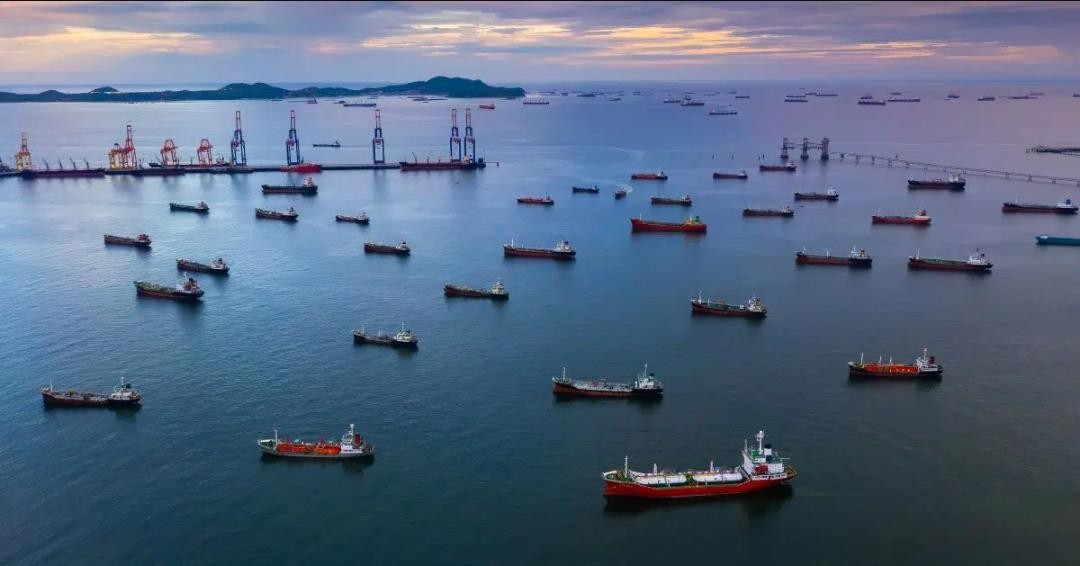欧盟正在加紧努力,通过瞄准更多的油轮来阻止俄罗斯从其石油贸易中获利。这是自俄罗斯入侵乌克兰以来的第15轮制裁,欧盟计划将最多48艘运输俄罗斯原油的油轮列入黑名单。
根据欧盟官员的报告,新的制裁还将针对29家公司和54名个人,使欧盟制裁的个人和实体总数增加到2200多家。
这些制裁背后的一个主要担忧是日益壮大的影子船队——在雷达下运作的油轮,绕过监管和制裁,运载俄罗斯石油。环保组织对这些船只对环境和制裁的执行构成的风险发出了警告。
最大的油轮公司之一Frontline的首席执行官Lars Barstad称,目前的制裁“有些不可靠”,并敦促全球当局更多地关注打击不受监管的船只,而不是脱碳。
影子船队是全球航运业的一个主要问题。随着越来越多的油轮在法律之外运营,尽管受到制裁,俄罗斯的石油出口仍在继续。
巴尔斯塔德说,俄罗斯现在在运输石油方面基本上是自给自足的,大约有300艘船只,其中许多是旧船,被用来将原油运往世界各地的市场。他补充说,虽然影子舰队可能正在帮助俄罗斯避开制裁,但就目前而言,其中一些油轮已经太旧了,无法长期使用。
除了对油轮采取这些新措施外,欧盟还考虑对俄罗斯天然气进口实施更严格的控制,并采取措施阻止第三国帮助俄罗斯绕过制裁。
例如,德国已经告诉其国家支持的液化天然气接收站不再接受俄罗斯天然气,从而收紧了对俄罗斯能源贸易的限制。
虽然新一轮制裁预计将在12月前敲定,但有传言称,明年将实施更严格的措施。将于2025年接任欧盟轮值主席国的波兰可能会推动对俄罗斯采取更强硬的行动,特别是在乌克兰战争仍在进行的情况下。
与此同时,英国继续加大制裁力度,目标是与非法石油贸易有关的俄罗斯船只和公司。最近,英国又批准了30艘船只,使其总数达到73艘,其中包括油轮和货船。
尽管如此,巴尔斯塔德认为,制裁执行力度仍不足以应对这一问题的规模。他还指出,虽然欧洲仍在购买大量俄罗斯天然气,但政治压力使政府更难维持这些制裁只是时间问题。
尽管如此,巴尔斯塔德认为,制裁的执行力度仍然不足以应对这一问题的规模。他还指出,虽然欧洲仍在大量购买俄罗斯天然气,但政治压力只会让政府更难维持这些制裁,这只是时间问题。
未来几个月将是至关重要的,因为欧盟将敲定其新的制裁方案,重点是这些措施将如何有效地关闭俄罗斯的石油贸易。
▲图源:网络,侵权必删
英文原文
The European Union is stepping up its efforts to stop Russia from profiting off its oil trade by targeting more of its tankers. In its 15th round of sanctions since Russia’s invasion of Ukraine, the EU is planning to blacklist up to 48 additional tankers involved in transporting Russian crude oil.
Per reports from EU officials, the new sanctions will also target 29 companies and 54 individuals, increasing the total number of people and entities sanctioned by the EU to over 2,200.
A major concern behind these sanctions is the growing shadow fleet- tankers that operate under the radar, bypassing regulations and sanctions to carry Russian oil. Environmental groups have raised alarms about the risks these ships pose to the environment and the enforcement of sanctions.
Lars Barstad, CEO of Frontline, one of the largest tanker companies, called the current sanctions “somewhat flaky” and urged global authorities to focus more on cracking down on unregulated vessels instead of decarbonisation.
The shadow fleet is a major issue for the global shipping industry. With more and more tankers operating outside the law, Russia’s oil exports continue to flow despite sanctions.
Barstad says Russia is now mostly self-sufficient in transporting its oil, with about 300 vessels, many of them older ships, being used to move crude to markets around the world. He added that while the shadow fleet may be helping Russia skirt sanctions, for now, some of these tankers are getting too old to be viable long-term.
Alongside these new measures on tankers, the EU is also considering stricter controls on Russian gas imports and measures to stop third countries from helping Russia get around the sanctions.
Germany, for example, has already told its state-supported LNG terminals not to accept Russian gas anymore, tightening the screws on Russia’s energy trade.
While this new round of sanctions is expected to be finalised by December, there are talks of even stricter measures being implemented next year. Poland, set to take over the EU presidency in 2025, is likely to push for even stronger actions against Russia, especially if the war in Ukraine is still ongoing.
Meanwhile, the UK has continued to increase its sanctions, targeting Russian ships and companies linked to the illegal oil trade. Recently, the UK sanctioned 30 more vessels, bringing its total to 73 ships, including tankers and cargo vessels.
Despite all of this, Barstad believes that sanctions enforcement is still not strong enough to deal with the scale of the issue. He also pointed out that while Europe is still buying large amounts of Russian gas, it’s only a matter of time before political pressures make it harder for governments to maintain these sanctions.
The next few months will be crucial as the EU finalises its new sanctions package, focusing on how effectively these measures will shut down Russia’s oil trade.
免责申明:本文来自外网,如有误差,以英文为准;仅代表作者观点,不代表中国海员之家立场。其真实性及原创性未能得到中国海员之家证实,在此感谢原作者的辛苦创作,如转载涉及版权等问题,请作者与我们联系,我们将在第一时间处理,谢谢!联系邮箱:cnisu@54seaman.com


 联系我们人工客服
联系我们人工客服



















 :1391995811
:1391995811


评论 (0人参与)